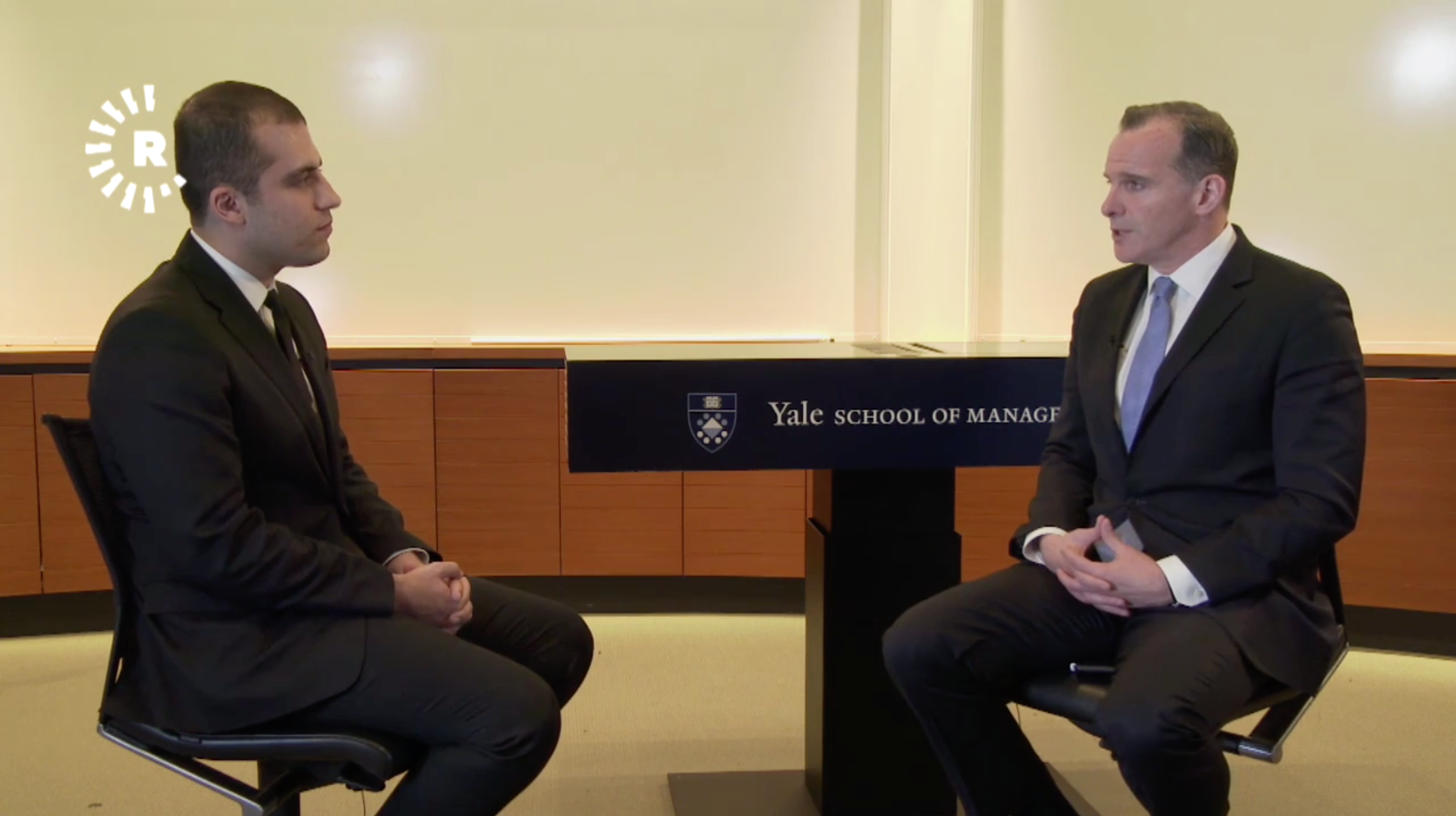NEW HAVEN – Since the US military abruptly withdrew from the Syria-Turkey border in October 2019, there has been great uncertainty across the region about the future of America’s support for its Kurdish allies in the fight against the Islamic State (ISIS).
The US has roughly 5,000 troops in Iraq, with a large contingent stationed in the Kurdish Region. It also has forces in Kurdish-controlled northeast Syria to secure a number of oilfields.
Brett McGurk, Washington’s former special envoy to the fight against ISIS, says the US presence in the Kurdistan Region of Iraq remains critical to keeping the threat of terrorism at bay.
“We are anchored in Iraq and the Kurdistan Region. I think that is very important,” McGurk told Rudaw’s Majeed Gly on a sideline of a Yale University conference about the Kurds on February 20, organized by the New York-based nonprofit Justice for Kurds.
“This [coalition against ISIS] was put together five years ago and we want to make sure that it continues.”
McGurk, who played an integral role in establishing the global coalition, resigned as its envoy in December 2018 when US President Donald Trump first raised his intention to withdraw troops from northeast Syria.
Jim Mattis also resigned as secretary of defense in protest at the move. The withdrawal was widely seen as a US betrayal of the Kurdish-led Syrian Democratic Forces (SDF), who had died in their thousands to defeat ISIS.
Although Trump backpedaled following the uproar, he eventually made good on his promise and ordered the US withdrawal in early October 2019.
US troops were seen as an insurance against a long-threatened Turkish invasion of Kurdish-controlled northern Syria.
This perception proved all too correct, as Ankara immediately attacked the Kurds following the US withdrawal.
Foreign policy experts in Washington warned the Trump administration’s actions could undermine trust in American resolve and potentially harm alliances with local forces in future conflicts.
As Turkish forces advanced, the SDF was forced to strike a deal with the Russian-backed regime of Bashar al-Assad, which had long suppressed the Kurd’s language and cultural expression.
The deal allowed regime troops to secure the Syria-Turkey border with the help of Russian military police. In return, the Kurds were allowed to continue operating their autonomous administration – at least for now.
“I encourage them [the Syrian Kurds] to look at all of their options,” said McGurk. “I think they have to be talking to everybody.”
“I’d like to say they could count on the US to stay there for a significant period of time. But given what we’ve seen, I don’t think they can count on that,” he added.
McGurk hopes the coalition will keep its resolve and that US forces will remain in Iraq, despite efforts by Iran and its proxies to force out American troops.
“I was proud in building that coalition in 2014 and it remains intact and united,” McGurk said.
“I think there’ve got some threats mainly coming from some of your neighbors trying to kick us out of Iraq. That seems to be manageable diplomatically I think. So I’m very hopeful that we will remain, not just the United States but the broader coalition,” he added.
Although ISIS leader Abu Bakr al-Baghdadi was killed in a US raid in Syria in late October 2019, and the group suffered territorial defeats in Iraq in December 2017 and in Syria in March 2019, ISIS remnants and sleeper cells continue to operate and launch attacks.
In Iraq, the group has exploited security gaps in the territories disputed between Baghdad and the Kurdistan Regional Government (KRG), launching frequent attacks on civilians and security forces.
“It’s really important to remember that the campaign that we built against ISIS was designed to be enduring,” said McGurk.
“That meant we will defeat the physical caliphate but we will stay to make sure the enduring defeat of ISIS.”

